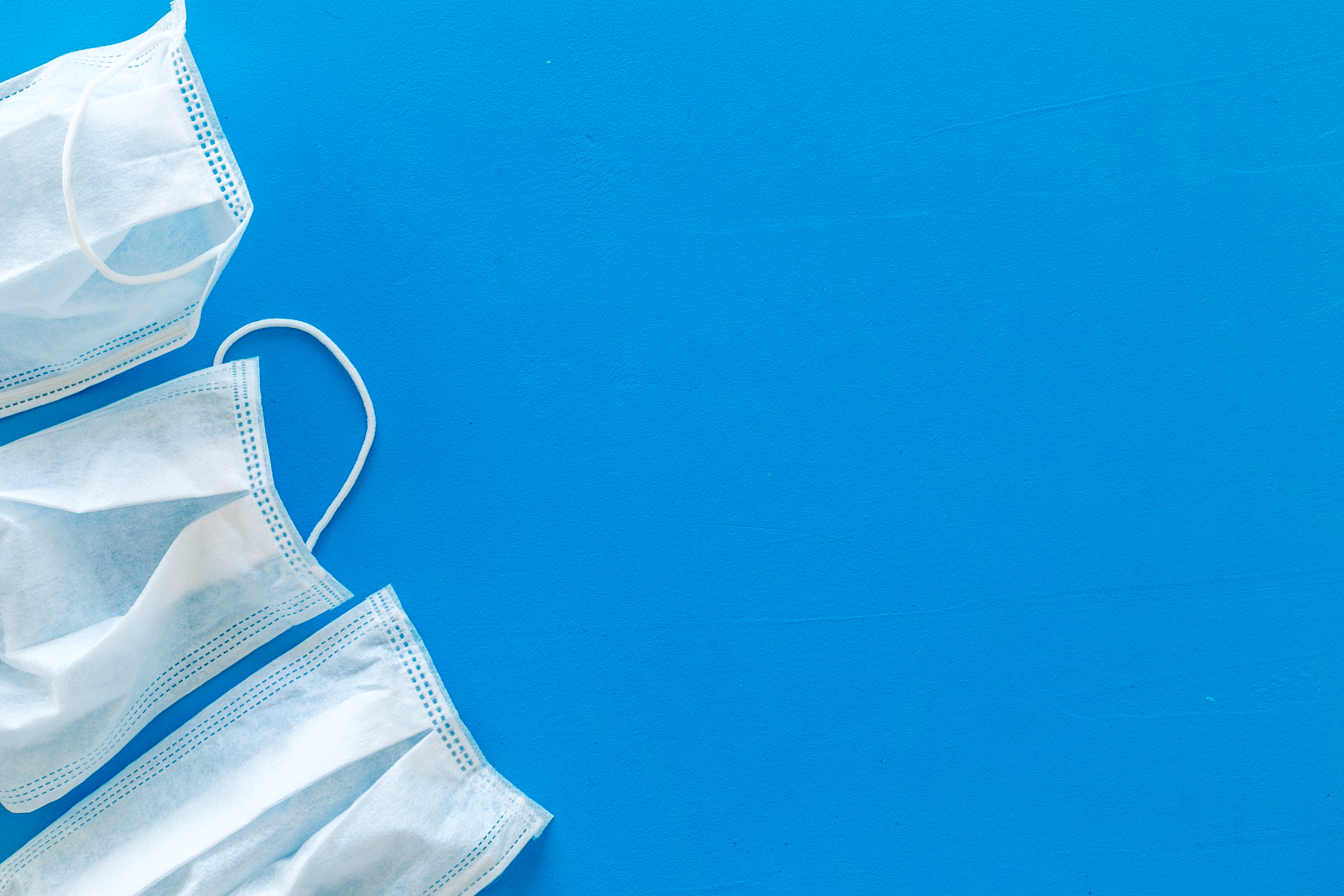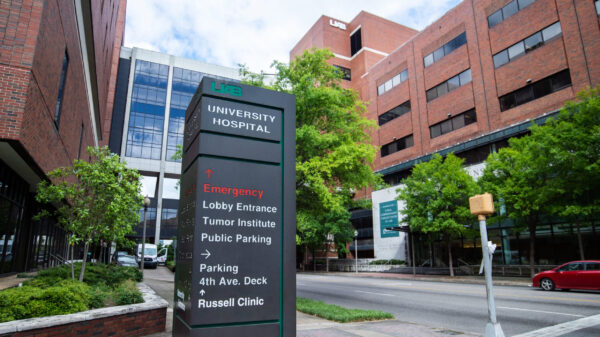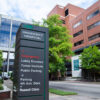Some health care workers at DCH Health System’s facilities in Tuscaloosa County are being told not to wear personal protective equipment like masks as the number of COVID-19 cases in the state continues to rise and hospitals rush to prepare for what’s ahead.
Now a clinician in one of these units is showing symptoms of the virus.
Hospitals are increasingly redirecting scarce supplies needed to prevent infection to units of their hospitals on the front lines — to places like emergency rooms and ICUs devoted to screening, testing and treating suspected COVID-19 patients.
But the redirection of protective equipment to these front-line units and the increasingly drastic measures hospitals are having to take to conserve supplies are opening up the possibility that other units not directly on the front lines could be new epicenters of infection.
One health care worker at DCH’s Northport medical center in Tuscaloosa County, who spoke with APR on the condition of anonymity because they were afraid of reprisal, said the increasingly severe nationwide shortage of masks led administrators to go so far as suspending an employee last week who refused to follow supervisors’ directions to stop wearing a mask — even as they were caring for older patients in a rehab unit.
APR confirmed this story by reviewing documents and emails.
DCH is not the only health care facility in the state, or the country, prioritizing masks for parts of the hospital where patients who are suspected of having COVID-19 are being treated.
DCH spokesperson Andy North said the hospital has experienced a shortage of masks, but health care workers who need to wear masks in the situations that require them, in accordance with CDC guidelines, are able to do so.
“DCH is following the most up to date guidelines from the Alabama Department of Public Health and CDC for the use of personal protective equipment (PPE),” said DCH Health System’s spokesperson. “The use of PPE is being strictly enforced due to shortages, but it is not limited to suspected or confirmed COVID-19 cases. Because of our judicious and appropriate use of PPE, we plan to be able to continue to provide safe care to our community while keeping our staff safe as well. PPE recommendations vary based on location and the job of the employee.”
Administrators and supervisors are telling these health care workers in lower risk units that wearing masks is wasting scarce protective equipment and causing unnecessary “panic” among the staff and patients. Some staff who had previously been required to wear a mask because they were not immunized against seasonal influenza are now being told not to wear masks.
President Donald Trump this weekend said he wouldn’t use emergency powers to compel companies to make more masks and other protective equipment hospitals need, even as the widespread shortage has prompted physicians, hospital administrators and medical workers to take to social media and the traditional media to beg for more PPE supplies.
Vice President Mike Pence said the government has placed orders for “hundreds of millions” of N-95 face masks, but hospitals across the country are having to make hard decisions about how to allocate supplies right now. Community groups, including one in Birmingham, are organizing via social media to sew homemade masks for health care works.
In Alabama, clinicians and other health care workers in these non-front-line units say they’re worried the directive not to wear PPE when caring for their patients — who are disproportionately at risk for adverse health effects if they contract COVID-19 — is putting people in danger.
“We work with a bunch of 60- to 70-year-old-plus individuals with a lot of preexisting conditions,” the clinician said. “These are the cases that the CDC and the WHO (World Health Organization) are saying, ‘Please stay away from these people,’ because if you infect them, you may cause them to die.’”
Under a recent order by the Department of Public Health, all elective dental and medical procedures must be postponed in the state, but certain outpatient care has been allowed to continue.
Recordings of some of these tense interactions between administrators and health care workers obtained by the Alabama Political Reporter appear to show hospital officials going to drastic lengths to try to conserve their supply of PPE. Managers in the non-front-line units are being told to direct their staff not to wear any masks at all, and that there is little to no risk of COVID-19 spreading in the facility.
Meanwhile, Tuscaloosa County has reported seven confirmed COVID-19 cases. There are sure to be more that haven’t been confirmed by tests. Testing has been limited and hospitals have been reporting they are experiencing a “severe” shortage of testing supplies.
These workers in units deemed as low-risk aren’t being allowed to supply their own PPE, either.
Last week, CDC posted recommendations that health care workers do whatever they can to protect themselves and their patients if they fear a patient may have COVID-19. These recommendations even include wearing a bandana or a scarf as a makeshift mask as a last resort when caring for COVID patients. (Updated Monday at 4 p.m. to clarify the CDC’s guidelines.)
“In settings where facemasks are not available, HCP might use homemade masks (e.g., bandana, scarf) for care of patients with COVID-19 as a last resort,” the CDC wrote. “However, homemade masks are not considered PPE, since their capability to protect HCP is unknown. Caution should be exercised when considering this option. Homemade masks should ideally be used in combination with a face shield that covers the entire front (that extends to the chin or below) and sides of the face.”
The clinician who spoke with APR said medical workers aren’t being allowed to sanitize and reuse masks they’ve already worn. The hospital spokesperson said the health system is following CDC guidelines that require providers to limit the number of times they wear a single mask.
The directives are leaving the health care workers in the facility concerned that they could be infected, and they could infect their co-workers, patients and families. Another health care worker at the hospital said the situation is “crazy.”
DCH’s spokesman said allowing staff to use their own PPE or makeshift masks could cause more harm than good. “There are several reasons but the main one is it is difficult to provide quality control oversight for personally provided PPE, which could lead to unintended unsafe situations,” the DCH spokesperson said when asked why hospital staff isn’t being allowed to furnish its own PPE.
Hospitals across the state are already struggling under the strain of the pandemic — severe personal protective equipment shortages, new cases arriving into emergency departments and the potential that their facilities may not have enough beds and ventilators.
“But the idea that we don’t have enough PPE so we’re just going to take it away from anybody who’s not literally in direct contact with someone we specifically know to have the disease — that flies in the face of the current idea that we do have asymptomatic carriers, that we do have people that have symptoms that may not be confirmed,” the clinician said.
Only N-95 masks are effective at preventing infection. Public health experts say surgical masks are not effective at preventing infection of COVID-19, but they are at least somewhat effective at preventing the transmission of the virus from the person wearing the mask.
“I can’t be certain that I myself am not a carrier,” the clinician said. “I’ve been out in the community.”
In Alabama, the Department of Public Health has reported that 157 people have tested positive for the virus, as of Sunday afternoon.
The number of COVID-19 cases in the state is believed to be much higher, but testing has been limited, and medical facilities are running out of testing supplies like viral transport media and nasal swabs.
The Tuscaloosa hospital system’s directive prompted a complaint to the Occupational Health and Safety Administration, but OSHA does not appear to have the authority to intervene.
As managers and administrators directed hospital staff not to wear masks to avoid panic and save supplies, patients with severe respiratory problems and fevers were being treated in the facility, symptoms that line up with those of COVID-19.
“We had two patients with respiratory issues that came up within two days,” the clinician said. “To our knowledge, it didn’t seem as though anyone had tested them at that point. I’m talking fever, cough, shortness of breath. One of them had recently been in acute respiratory failure and on a ventilator.”
“The nurses on the floor as well as all the therapists seem to get that. There’s beginning to be some unrest, especially with the lack of testing that we’re seeing with patients,” they said.
The clinician who spoke with APR said they are now displaying symptoms of COVID-19 including cough and shortness of breath.
“I came down with a cough and a fever and shortness of breath, and now I have to go get tested,” they said. “My biggest worry is that we’re putting our patients in the direct path of this thing right now. Everything else comes secondary to that. These people come to us to get stronger, to be able to go back home and return to their previous level of function, but if we’re risking them this way, we may even be sending people back out into the community from here that may have been exposed that are unaware.”
Updated at 4 p.m. with clarifications regarding DCH’s policies and CDC guidelines.























































